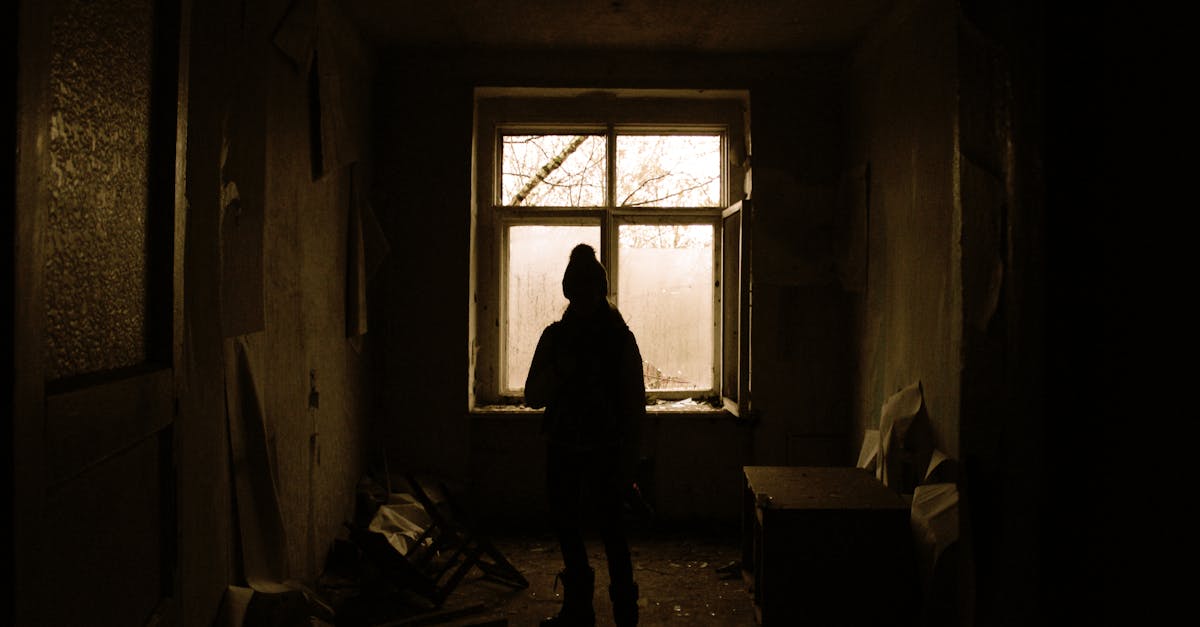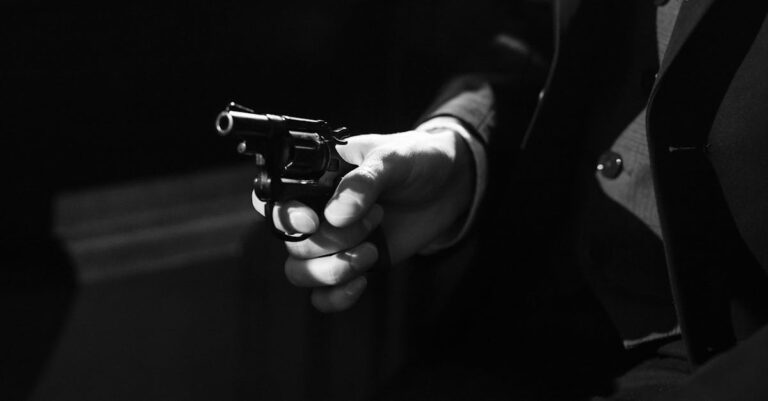
The air in Willow Creek tasted like rust and pine sap when Mara stepped off the bus, her boots crunching over gravel that whispered secrets beneath her feet. The town stretched before her—weathered clapboard houses, a diner with a flickering neon sign, and the skeletal silhouette of the old mill crouched at the edge of the woods. It had been ten years since she’d last seen the crooked spire of St. Agnes Church, its steeple still leaning westward as if fleeing something. She hadn’t returned since the night her father’s truck splintered against the bridge, its engine still running when they pulled his body from the river. The townspeople had called it an accident. Mara had never believed them.
Mrs. Delaney’s bakery was the first thing that smelled like home—fresh bread, cinnamon, and the faint tang of burnt sugar. The door jingled as Mara pushed it open, and the scent of buttered pastries wrapped around her like a half-remembered lullaby. Mrs. Delaney looked up from arranging croissants, her face a map of wrinkles. “You’re late,” she said, not unkindly. “I expected you two days ago.”
Mara hesitated. The last time she’d seen the woman, she’d been shouting at Mara’s father over the phone, her voice cracking with something that sounded like fear. “I didn’t think I’d be back,” she said, fingers brushing the chipped counter.
“Well, you are,” Mrs. Delaney replied, sliding a paper-wrapped package across the counter. “Your father left this. Said to give it to you when you came home.”
Mara’s breath hitched. The package was wrapped in brown paper, tied with twine that smelled of damp earth. She unwrapped it carefully, revealing a stack of yellowed letters and a key stamped with the crest of the old mill. The letters were addressed to her, written in her father’s jagged script. The first one read: *”If you’re reading this, they’ve already started. Don’t trust the river. Don’t trust anyone.”
Outside, the wind shifted, carrying the metallic scent of rain and the distant wail of a train. Mara tucked the letters into her coat and stepped back into the sun, her pulse a frantic drumbeat against her ribs.
The mill loomed ahead, its windows like empty eyes. Mara hesitated at the rusted gate, then pushed it open. The air inside was thick with dust and the stink of mildew. A single bulb flickered overhead, casting jagged shadows across the floor. She moved carefully, her boots echoing in the cavernous space. Then she heard it—a soft click, like a door closing somewhere deeper in the building.
“Hello?” Her voice was swallowed by the silence. The click came again, closer this time. Mara’s hand drifted to the knife she’d taken from Mrs. Delaney’s kitchen, its handle slick with sweat. She crept toward the sound, her breath shallow, until she reached a door marked *Storage*. The handle was cold beneath her fingers. She pushed it open.
The room was empty, save for a single chair and a rusted chain bolted to the floor. A faint smell of antiseptic clung to the air. Mara’s gaze drifted to the wall, where a series of numbers were carved into the wood—*1987, 1992, 1998, 2003*. She traced the grooves with her thumb, feeling the depth of each scar. The last number was still fresh, the wood pale beneath the carving.
A floorboard creaked behind her. Mara spun, knife raised, but the room was empty. The door swung open on its own, revealing a narrow staircase descending into darkness. She hesitated, then stepped forward, her flashlight casting a shaky beam over the steps. The air grew colder as she descended, the scent of wet stone and decay thickening with each step.
At the bottom, a door stood ajar. Inside, a small room was lit by a single bulb, its light casting long shadows across the walls. A desk sat in the center, littered with papers and a rusted key ring. Mara picked up a stack of files, her fingers trembling as she flipped through them. Names, dates, and brief notes filled the pages—*”Subject 12: Aggressive behavior. Subject 14: Resistant to treatment.”* Her father’s handwriting. The last entry read: *”Final test. Results inconclusive. Need more time.”*
A sound echoed from the corridor—footsteps, slow and deliberate. Mara froze, then snatched the key ring and sprinted back up the stairs, her breath ragged. The door slammed shut behind her, locking with a final, metallic *clang*. She pressed her back against it, heart pounding, as the footsteps grew louder.
The next morning, Mara stood at the edge of the river, the letters clutched in her hand. The water was still, its surface reflecting the gray sky like a mirror. She unfolded the last letter, her father’s words jumping out at her: *”They’re not gone. They never were. The mill’s just the beginning.”
A voice behind her made her start. “You shouldn’t be here.” It was Tom, the sheriff’s son, his eyes shadowed with something Mara couldn’t quite name. He stepped closer, his boots crunching on the gravel. “You don’t know what you’re digging into.”
“I know enough,” she said, her voice steady. “My father’s not dead. Someone killed him.”
Tom’s jaw tightened. “You think I don’t know that? But you’re not the first to ask questions. And you won’t be the last.” He turned to leave, then paused. “Be careful, Mara. Some secrets don’t want to be uncovered.”
That night, Mara sat in her father’s old truck, the letters spread across the seat. The wind howled outside, and the headlights cast long shadows on the road. She drove toward the edge of town, where the woods thickened and the road ended. A single light flickered in the distance—a cabin, its windows glowing like eyes in the dark.
As she approached, the door creaked open, revealing a figure silhouetted against the light. Mara’s breath caught. The man was older, his face lined with years of hard living, but his eyes were sharp, assessing. “You’re late,” he said, his voice rough with disuse. “I’ve been waiting for you.”
Mara stepped out of the truck, her hand hovering near the knife. “Who are you?”
The man smiled, but it didn’t reach his eyes. “A friend. Or maybe a foe. Depends on what you’re looking for.” He gestured to the cabin. “Come in. We have a lot to talk about.”
The cabin was warm, the fire crackling in the hearth. Mara sat across from the man, her eyes scanning the room—old photographs, maps pinned to the walls, a stack of files identical to the ones she’d found in the mill. The man studied her, then spoke. “Your father wasn’t just a mechanic. He was part of something bigger. A group that tried to expose the truth about what happened here.”
“What happened here?” Mara asked, her voice barely above a whisper.
The man leaned forward, his gaze intense. “A pattern. People disappearing, always around the same time. The town’s got a history of secrets, and some of them don’t like to stay buried. Your father tried to stop it. That’s why he died.” He paused, then added, “But he left something behind. A way to keep going.”
Mara’s hand trembled as she reached for the key ring. “What do I need to do?”
The man smiled, a slow, deliberate motion. “Find the others. The ones who survived. They’re still out there, waiting for someone to listen.” He stood, pacing the room. “But be careful. Not everyone in this town is on your side. And some of them will do anything to keep the truth hidden.”
The next day, Mara drove through the town, her eyes scanning every face, every shadow. She knew the game had changed. The secrets of Willow Creek were no longer just buried in the past—they were alive, breathing, and watching. She didn’t know what lay ahead, but one thing was clear: she couldn’t turn back now. The truth was out there, waiting to be found, and she would stop at nothing to uncover it.


